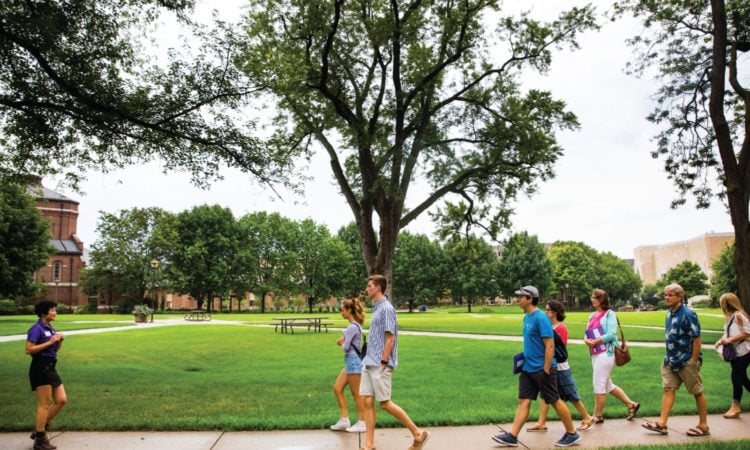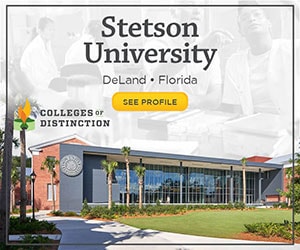Your Ultimate Guide to College Campus Tours
Congratulations on narrowing down your list of potential colleges! Choosing the right college is one of the most important decisions you’ll make in your academic journey. A college campus tour is a vital step in this process, as it provides you with firsthand experience and insights into campus life, facilities, and the overall environment. Whether you’re a high school student exploring your options or a transfer student looking for a change, this ultimate guide to college campus tours will help you make the most of this crucial experience.
Here are 11 tips to help you make the most of your college campus tours:
1. Plan Ahead:
As you dive into the world of campus tours, a little planning goes a long way. Research the colleges you’re visiting, jot down your questions, and outline what aspects of campus life are most important to you. This groundwork will help you get the most out of your tours and make your visits more meaningful. “Creating a check-list of what is important to you (small classes, urban or suburban campus, types of majors, assistance with internships, etc.), is important to bring with you when you visit. This way you won’t forget to look for or ask certain questions and can compare campuses”. -Francesca Reed, VP of Enrollment and Marketing, Neumann University
2. Schedule Your Visit:
Reach out to the admissions office of the colleges you’re interested in to schedule your campus tours. Many schools offer specific tour times, so plan your itinerary accordingly. If possible, try to visit when classes are in session to get a true sense of campus life.
3. Ask about fly-in programs.
If a campus you’d like to visit is far from home, the cost of trying to get there may be a barrier. Many colleges offer fly-in programs for students either prior to or after admission that will cover your flight and even a hotel stay. Some colleges will reimburse you for a portion of your travel costs regardless of when you visit. Inquiring about financial assistance for your visit is a worthwhile step in your planning.
4. Attend Information Sessions:
Colleges often offer information sessions before or after the campus tour. These sessions provide valuable insights into the institution’s values, academic programs, and admission process. Attend as many sessions as you can to gain a comprehensive understanding of each college.
5. Take a Guided Tour:
Guided tours are a fantastic opportunity to explore campus with knowledgeable student guides who can offer insider perspectives. Take note of the buildings, landmarks, and facilities that resonate with you. Don’t hesitate to ask questions along the way.
“As someone who has given tours for the past three years, my biggest piece of advice for students starting to tour schools is to come prepared with at least three questions! Come with a personalized question about academics, one about residential life in the dorms, and one about getting involved in community/activities as a baseline! Happy touring!” – Molly Evans, University of the Cumberlands
6. Explore Academic Facilities:
If your major is a significant factor in your decision, make sure to explore the academic facilities related to your field of study. Check out labs, libraries, classrooms, and any specialized spaces that contribute to your educational experience. While it may seem tempting to go on a self-guided tour of these facilities, make sure you have express permission from the school to enter these spaces.
7. Immerse Yourself in Campus Life:
Take time to observe campus life as you tour. Pay attention to student interactions, engagement, and the overall atmosphere. Picture yourself as part of the community, and consider whether you feel comfortable and excited about being there. Take advantage of opportunities to sit-in on a class. This gives you insight into faculty and student interaction.-Francesca Reed, VP Enrollment and Marketing, Neumann University
8. Check Out Housing Options:
If possible, visit the dormitories or other housing options available to students. Imagine yourself living in these spaces and assess whether they align with your preferences for comfort, privacy, and community. Again, make sure you have permission to enter these buildings.
9. Experience the Surrounding Area:
Your college experience extends beyond campus boundaries. Venture into the surrounding area to get a sense of the local culture, entertainment options, and amenities. Consider whether the location resonates with your lifestyle and interests.
10. Take Photos and Notes:
As you tour each campus, capture the moments that resonate with you. Take photos and jot down notes about what you like and any questions that arise. These visual and written cues will be invaluable when you’re comparing colleges later on.
11. Reflect and Compare:
After each campus tour, take time to reflect on your experience. How did you feel during the visit? Did the campus meet your expectations? Review your notes and compare the colleges based on your priorities, such as academic offerings, campus culture, location, and financial considerations.
What if I can’t make it to campus?
Can’t make it to campus? No problem! In today’s interconnected world, the opportunity to explore college campuses has expanded beyond physical visits. Virtual campus tours have emerged as a valuable alternative, offering students a dynamic way to experience prospective colleges from the comfort of home. These virtual tours provide a unique window into campus life, allowing students to compare colleges and make informed decisions.
Virtual campus tours have proven to be more than just a temporary substitute for in-person visits; they offer a range of benefits that can enhance the college exploration process. Through immersive videos, interactive maps, and guided narratives, students can virtually walk through campus grounds, explore academic facilities, and visualize dormitories. This technology-rich experience provides a sense of what life might be like on campus, allowing students to assess the environment and amenities.
Remember, campus tours are a chance to envision yourself as a part of the college community. Trust your instincts and listen to what your heart and mind are telling you about each campus. This is your opportunity to explore the environment where you’ll learn, grow, and succeed in the coming years.






